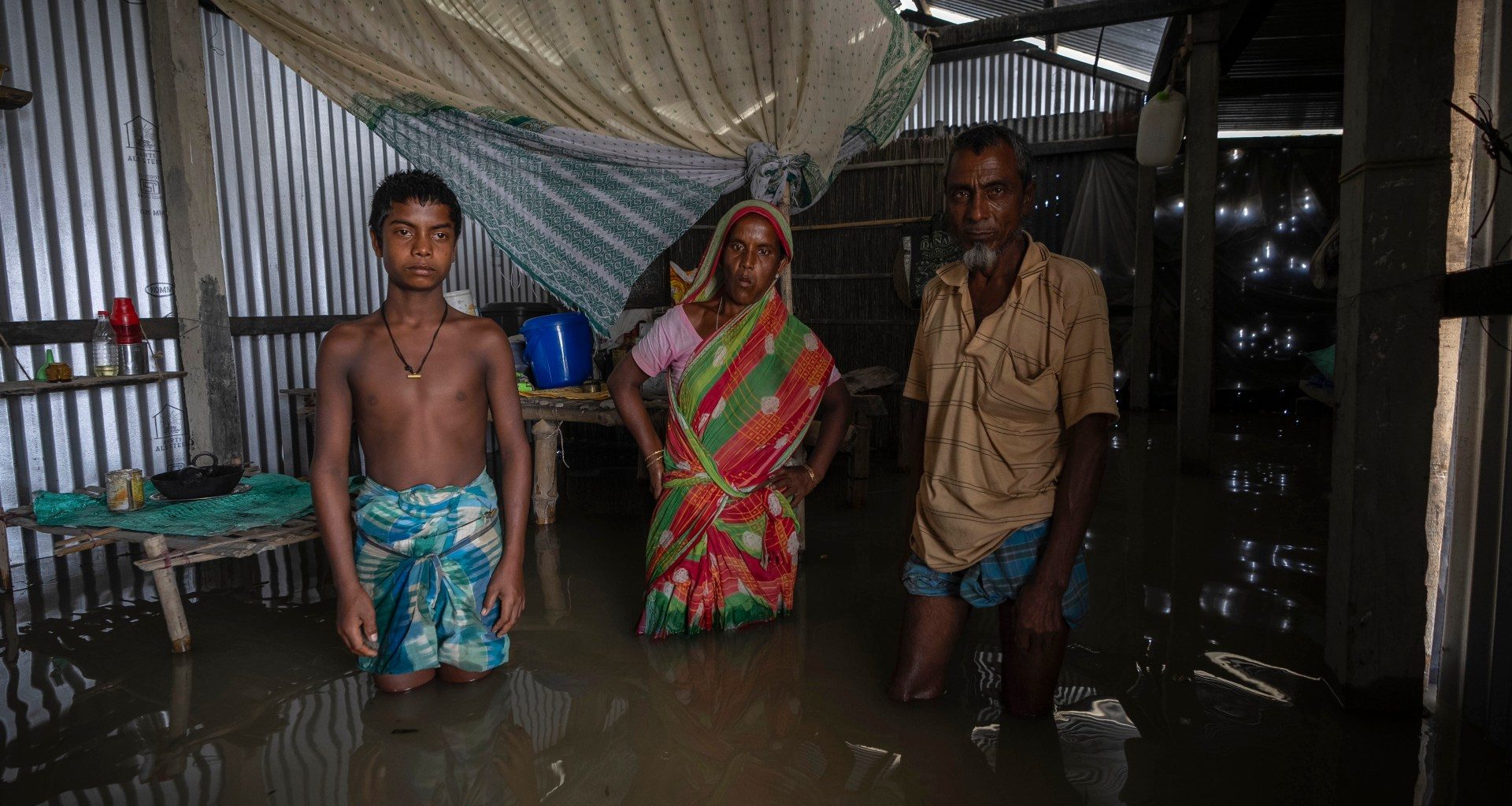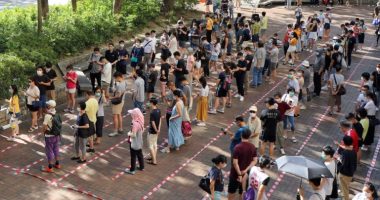
Yaad Ali is dreading the rainy season’s arrival this year.
The 56-year-old farmer from northeastern India’s Assam state lives with his wife and son on Sandahkhaiti island on the Brahmaputra River.
The island, like 2,000 others on the river, floods with increasing ferocity and unpredictability as human-caused climate change makes rain heavier and more erratic in the region.
The family move away with every flood, and move back to their house every dry season.
Ali said politicians in the region have made promises to provide relief for them, including during the current election, but little has changed for his family. For now, they contend with being displaced for large parts of the year.
“We need some sort of a permanent solution,” Ali said. “In the last few years, it’s only a short time after we recover from flood damages that we have to be ready to face another flood.”
A permanent piece of land in a safer region of the state can be the only solution to their troubles, he said. And while local governments have talked about it, only a few river islanders have been offered land rights in the state.
When The Associated Press met Ali and his family last year, they were relocating because of incessant rain that had flooded their island home. Now, during the dry season, Ali and his family cultivate red chilli peppers, corn and a few other vegetables in their small farm on the island.
‘Nobody cares about our problems’
Like most other islanders, farming is their livelihood: An estimated 240,000 people in the Morigaon district of the state – where some of the river islands, known as Chars, are located – are dependent on fishing and selling produce like rice, jute and vegetables from their small farms.
When it rains, the family stays as long as they can, living in knee-deep water inside their small hut, sometimes for days; cooking, eating and sleeping, even as the river water rises. But sometimes the water engulfs their home, forcing them to flee with their belongings.
“We leave everything and try to find some higher ground or shift to the nearest relief camp,” Monuwara Begum, Ali’s wife, said last year. The relief camps are unhygienic and there’s never enough space or food, Ali said, and “sometimes we get only rice and salt for days”.
But when it is dry, the family has temporary respite. They move back to their homes, tend to their farms, and are able to make a living selling the produce they harvest.
India, and Assam state in particular, is seen as one of the world’s most vulnerable regions to climate change because of more intense rain and floods, according to a 2021 report by the Council on Energy, Environment and Water, a New Delhi-based climate think tank.
Like many others on the Chars, Ali and his family are unable to afford to permanently relocate and have reconciled themselves to their fate of moving back and forth to their home.
“Nobody cares about our problems,” said Ali. “All the political parties promise to solve the flood problems but after the election, nobody cares about it.”
“We have to manage here somehow,” he said.
Read More: World News | Entertainment News | Celeb News
Aljazera









